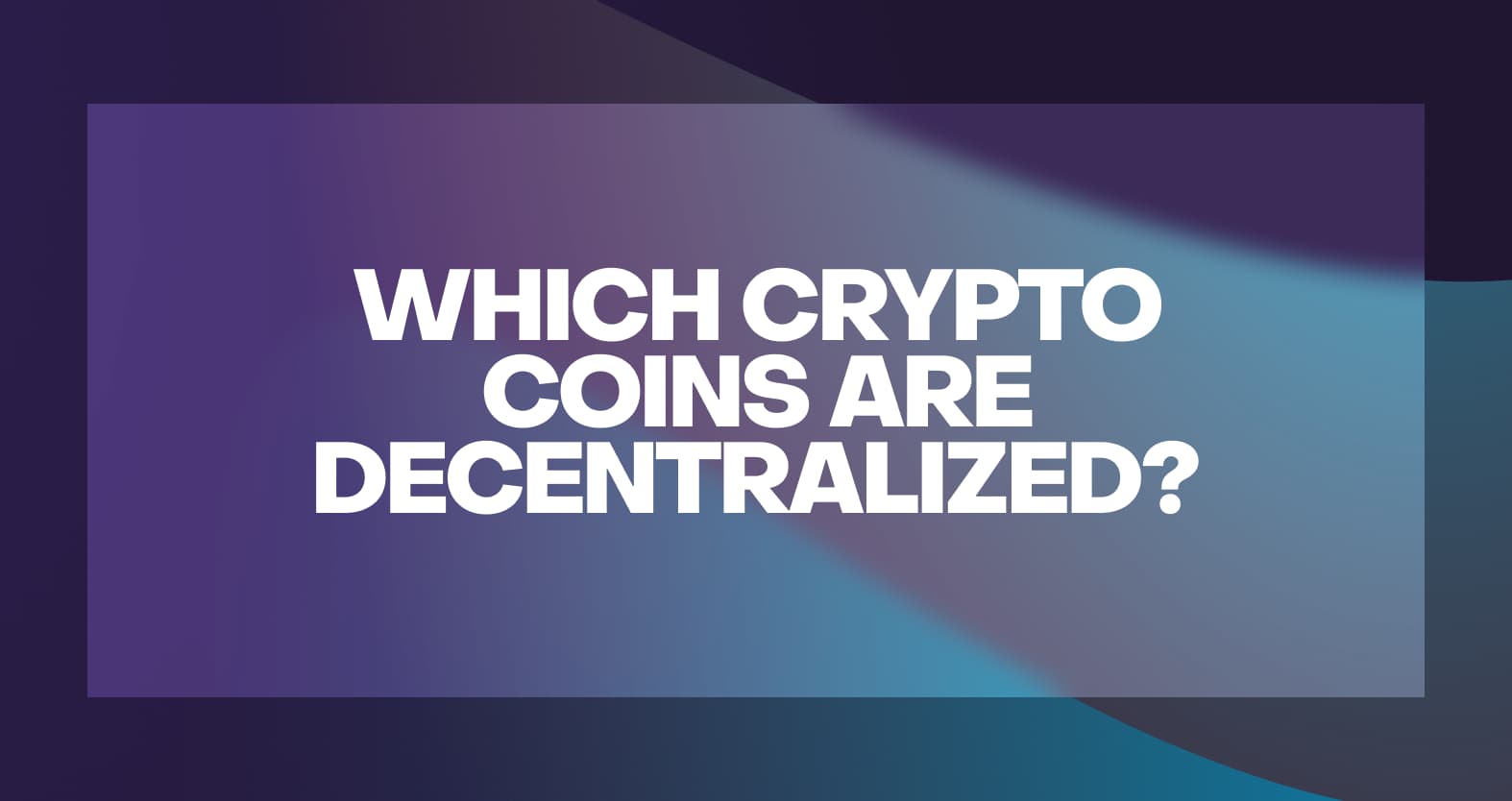
Table of contents
Decentralization is one of the core principles of cryptocurrencies. It is the technical provision that disallows central control of a blockchain network by one or a few parties.
Very few innovations can disrupt financial markets, economics, and currency on a broad scale. The invention of cryptocurrencies and their subsequent adoption has managed to do precisely that, as it questions and challenges the efficacy of traditional financial systems, introducing new methods of distributing and control.
One of the defining features of crypto assets is that they are digital, decentralized forms of currency that derive their value and validity from a network of users. In economics, the concept of decentralization is explained via market types and power distribution. However, developments in technology over the last few years have increasingly made the term more likened to cryptocurrencies than anything else.
What Is Decentralization?
Decentralization refers to the ability of a network of nodes to control and validate transactions on a direct, peer-to-peer basis without the need for third parties or intermediaries. The decentralized model removes the need for centralized governing authority and provides multiple decision-makers with shared control over the network.
Decentralized blockchains use various consensus algorithms for network management. Nodes on the Bitcoin (BTC) and Ethereum (ETH) networks run decentralized Proof-of-Work (PoW) and (following its migration to ETH 2.0) Proof-of-Stake (PoS) consensus algorithms to record and verify all transaction data. These algorithms ensure that each network achieves consensus with minimal resources, all while maintaining integrity and transparency. PoW and PoS are currently the most commonly used consensus algorithms.
What Are Decentralized Coins?
Decentralized coins are digital or virtual crypto assets secured by cryptography and managed by decentralized networks built using blockchain technology. Some of the features of decentralized crypto assets include:
No Central Authority
Central authorities like banks and regulatory agencies control the traditional finance system. With decentralized coins, no central authority governs the currency or its underlying blockchain. Instead, all transactions get processed and validated by a distributed and open network with no owners.
Additionally, there are no centralized servers or repositories for network data. Blockchain information is publicly available and stored in a distributed ledger, ensuring safety and efficiency. This significantly mitigates the risk of a cyber attack and increases trust amongst users looking to access network information anytime.
Consensus Decision Making
Blockchains use the consensus method to make quick and unbiased decisions for asset maintenance and upgrades. The consensus method also allows participants, including developers, miners, and traders, to contribute to milestone events.
Issuance
Decentralized currencies have a limited and predetermined supply of tokens as embedded in their underlying algorithm. No individual or group can change or manipulate this on a whim.
Uses of Decentralized Coins
As decentralized coins continue to grow, the use cases for these assets expand. Here are some of the most common mainstream uses of decentralized crypto assets:
Store of Value
Many people in the crypto community use cryptocurrencies as a store of value. In countries faced with inflation and unfavorable government policies, citizens turn to cryptocurrencies to help preserve the value of their funds, mitigating against the adverse effects of inflation.
Medium of Exchange
Crypto’s use as a medium of exchange is becoming as popular as its use as a store of value, both of which were some of the original use cases for this new asset class. People now use crypto for payments, which can reduce and ease transaction costs by cutting out third-party payment processors. Crypto is also the easiest way to make cross-border transactions.
Protocols and Exchanges
Several crypto projects work towards facilitating interoperability between blockchains and other related platforms. Exchanges also design native tokens that power transactions within and outside their ecosystems. Examples include Binance Coin (BNB), Bancor (BNT), Loopring (LRC), and Huobi Token (HT).
Gaming, Media, and Socials
Gamers, influencers, and content creators can earn on blockchain-based platforms via decentralized coins. As a result, each creator can maintain their autonomy, provide services to the blockchain community, and earn from their hard work without being shortchanged by centralized authorities.
FinTech
Some payment providers, digital asset exchanges, and corporate entities use decentralized coins to run their systems. These fintech entities provide an improved user experience by connecting various related platforms through cryptocurrencies.
DeFi
Decentralized coins are essential to the decentralized finance (DeFi) sector. DeFi platforms use native or third-party DeFi tokens to handle transactions, ensuring near-complete decentralization. The ever-expanding DeFi sector will see an increase in the number of DeFi cryptocurrencies as more use cases arise.
Top Decentralized Coins
Below are some of the top decentralized crypto coins in the market.
Bitcoin
Bitcoin is the largest cryptocurrency by market cap. It utilizes thousands of active nodes distributed across the globe to run and maintain its network. Due to the extensive network of nodes, many consider Bitcoin one of the sector’s most decentralized cryptocurrencies.
Ethereum
Ethereum’s decentralization comes from its open-source nature. Suggestions for improvements to the Ethereum network are open to the entire network through Ethereum Improvement Proposals (EIP). Ethereum is the most widely used decentralized smart contract platform by users and developers.
Monero
Monero (XMR) is another long-standing decentralized cryptocurrency that has been around as long as Ethereum. XMR, the native cryptocurrency of the Monero blockchain, is known for its anonymity and privacy.
Litecoin
Litecoin (LTC) is often referred to as the ‘silver to Bitcoin’s gold’ or ‘digital silver.’ LTC launched in 2011 with plans to become a global payment network like Bitcoin. It uses the Proof-of-Work consensus algorithm to make network decisions and implement them.
How to Manage Your Decentralized Coins
Crypto users have constantly looked for secure ways to store and transact with their assets. Users can manage their cryptocurrencies from various centralized and decentralized crypto exchanges. Some well-known cryptocurrency exchanges include:
- Binance
- FTX
- Coinbase Exchange
- Kraken
- AtomicDEX
Anyone can start to manage their decentralized assets by setting up an AtomicDEX wallet. The platform provides all users with a wide range of decentralized coins for easy trading. Atomic DEX wallet also offers multiple layers of security for the safety of assets.
Wrapping Up
Decentralization is one of the most fundamental features of cryptocurrencies and blockchain technology as a whole. The feature makes them unique and provides an edge over traditional fiat currencies. Since the blockchain industry is still young, there is plenty of room for more decentralized projects across multiple networks, and also a chance for currently centralized projects to achieve decentralization.
Start exploring the vast array of decentralized crypto tokens by holding and trading on AtomicDEX.




